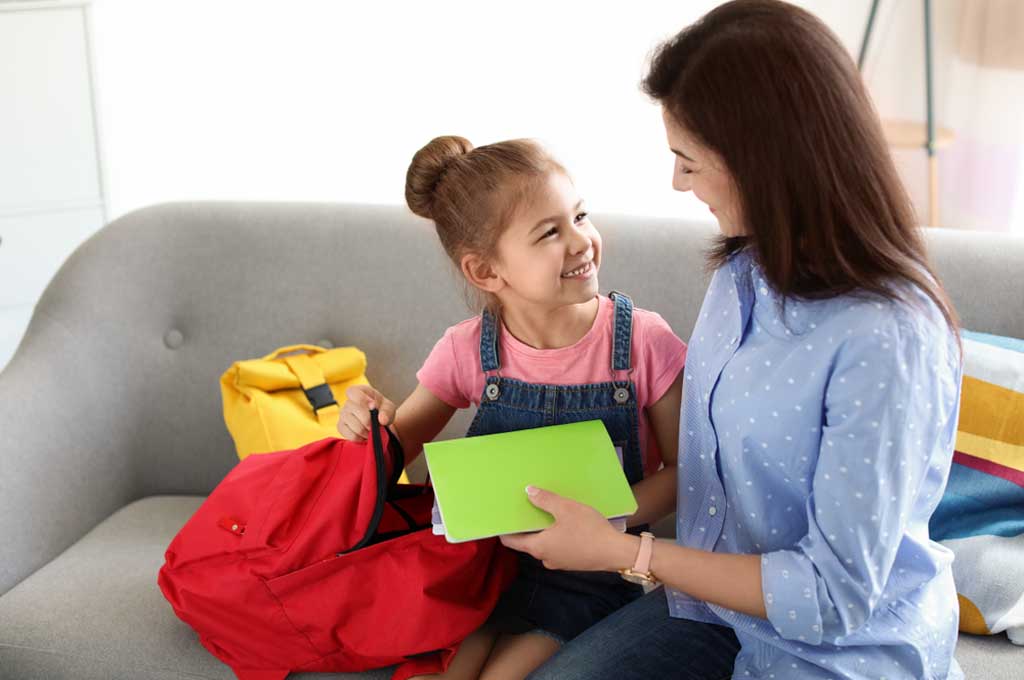School Readiness and What the Research Says Affects It May Surprise You
The subject of school readiness can be confusing for parents. Many assume readiness is a task that is mastered during the preschool years. After all, isn’t that one of the reasons they go? To get ready for school?
If you assume being able to identify letters and numbers or knowing how to read and write are the sole indicators of school readiness, this article may surprise you. Recent research indicates school readiness is much more complicated and requires a holistic approach that takes into consideration multiple factors.
What is School Readiness?
According to the official government website, school readiness is defined as “a measure of the knowledge, skills and behaviours that enable children to participate and succeed in school.” While it is quite common for parents to assume this means reading, writing, and/or basic math, school readiness requires evaluating each child in his or her entirety and assessing development in the following areas:
-
– Are children able to work collaboratively with others? Do they understand and use basic manners?
-
Emotional skills – Can children follow simple instructions? Are they able to control their emotions?
-
Physical skills – Do children have well-developed fine and gross motor skills? Can they hold and use a pencil correctly? Can they jump and skip?
-
Communication skills – Can children communicate with one another? Can they listen to and retell simple stories? Can they express their feelings?
-
Cognitive skills – Do children posses critical thinking skills? Can they problem solve and ask questions about their environment?
Why Does Readiness Matter
Research indicates that children who enter the school system when they are developmentally ready tend to perform better, not only in kindergarten but throughout their primary education. They also tend to be more socially adept and are less likely to be placed in special education classes.
A Recent Study Expands the Definition
A study completed by the Telethon Kids Institute reviewed the experiences of 4,000 Aussie families with pre-school aged children to understand the connection between factors that determine school readiness.
The researchers studied families with children aged 4 – 5 years old and assessed:
-
Individual child characteristics – physical health and emotional, communication, and cognitive development
-
Family characteristics – parental health, stress levels, and the effectiveness and consistency of parenting
-
Neighborhood characteristics – the support and connection a child feels from their local community
-
School characteristics – the environment in which a child learns and the health of the teacher-child relationship
The study found that 70% of the pre-school aged children evaluated were, in fact, prepared for primary school. These children tended to perform better in areas such as reading comprehension and emotional and behavioral health.
Researchers then re-evaluated the same children and their families when the children were 8 – 9 years old and were surprised at the findings. While more traditional measures of school readiness were key factors in school readiness, other factors (like family, neighborhood, and school characteristics) were able to predict future academic success.
Parental factors were found to be strong predictors of behavior and emotional problems in children aged 8 – 9 years. Factors included parents who were inconsistent or lacked confidence in their parenting.
A mix of individual, family, neighborhood, and school factors strongly predicted low reading comprehension in children aged 8 – 9 years.
Researchers realised that family, home environment and community have as big an impact on school readiness as the child’s own capabilities and skills. The study results have provided valuable insight to educators and some schools are putting the information to practical use.
Balance Early Education in Bathurst decided to create a program that would support soon-to-be preschool graduates as they transitioned into primary school. The program, called Help Me Grow, grouped children together according to which primary school they would attend, then let them choose flowers and plants to start growing three months before they transitioned to their new school.
The children care for the plants with the understanding that the blooms will move with them to the new school. The program allows children to build relationships with peers who will attend “big school” with them and creates a connection between their pre-school and their new primary school, thereby creating the school and community support that the study indicates is so integral to long-term educational success.
The importance of this study and school readiness cannot be overstated. The education of children is one of the greatest investments we make in our future. This study provides us with valuable information and helps us ensure children are well supported and truly ready to transition from the pre-school environment into primary school.
For any more information, call Clovel Childcare and Early Learning Centre, don’t hesitate to get in touch with us. For any information about our Educational Programs, give us a call at 02 9199 0294 or fill in this contact us form.
Thanks for reading,
Clovel Childcare
1300 863 986









